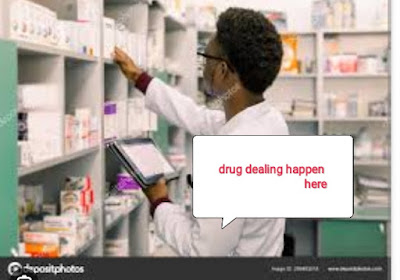Labels
- addiction
- Ai
- anxiety medications
- brand
- business
- charas
- choclate
- cigratee
- company
- Control
- dealing
- depression
- dollar
- Drug
- drugs
- effect
- Emedimic
- exposed
- forever notice
- Gadgets
- hash
- hashish
- industry
- iPhone
- Lyrics
- million
- Millon
- money
- monopoly
- Music
- phone
- power
- recovering
- recovery
- rub
- Song lirycs
- technology
- trade
- victim
- Weed
Labels
- addiction (4)
- Ai (2)
- anxiety medications (1)
- brand (1)
- business (9)
- charas (2)
- choclate (1)
- cigratee (1)
- company (2)
- Control (1)
- dealing (11)
- depression (4)
- dollar (2)
- Drug (10)
- drugs (5)
- effect (1)
- Emedimic (1)
- exposed (1)
- forever notice (1)
- Gadgets (3)
- hash (1)
- hashish (1)
- industry (1)
- iPhone (1)
- Lyrics (1)
- million (1)
- Millon (1)
- money (3)
- monopoly (1)
- Music (1)
- phone (1)
- power (1)
- recovering (1)
- recovery (1)
- rub (1)
- Song lirycs (2)
- technology (1)
- trade (2)
- victim (2)
- Weed (1)
Drug Abuse and the Human Conditions in Nepal: A Tale of Hope and Resilience Introduction Nepal, a country renowned for its breathtaking landscapes and rich cultural heritage, hides within its serene beauty a complex and heart-wrenching issue: drug abuse. Beyond the Himalayan peaks and ancient temples, there lies a struggle faced by many Nepali people – a struggle that often goes unnoticed. In this article, we explore the human conditions of those affected by drug abuse in Nepal, shedding light on their stories of hope, resilience, and the ongoing battle for a better future. Table of Contents: Introduction Setting the Stage for a Hidden Struggle The Lure of Escapism Raju's Story: From Dreams to Despair Families Torn Apart Sita's Struggle: A Mother's Pain The Stigma and Isolation Sanjay's Secret: A Lonely Battle Community Efforts and Resilience Maiti Nepal: A Beacon of Hope Recovery and Redemption Raju's Journey: From Darkness to Light Conclusion: The Resilient Spiri...
**Discovering the Google Pixel 7 Pro: Unveiling Unmatched Specifications and Features*
Published by
Deal a drug
On
Discovering the Google Pixel 7 Pro: Unveiling Unmatched Specifications and Features SEO Meta-Description Explore the incredible features and specifications of the Google Pixel 7 Pro in this detailed article. Discover what makes this smartphone stand out from the rest. Introduction The Google Pixel 7 Pro has been creating quite a buzz in the tech world, and for good reason. Packed with cutting-edge features and specifications, this smartphone offers an unparalleled experience to its users. In this article, we'll delve deep into the world of the Google Pixel 7 Pro, uncovering its unmatched specifications and features that set it apart from the competition. Table of Contents Introduction Connectivity That Transcends Boundaries Design and Display: A Fusion of Form and Function Performance and Power: Elevating Expectations Charging Paradigm: Redefining Convenience Sensors and Security: Prioritizing Protection and Precision Capturing Life's Essence: Visual and Auditory Excellence Pr...
Zimbabwe codeine cough syrup epidemic. Let's see
Published by
Deal a drug
On
Title: Battling the Codeine Crisis: Zimbabwe's Struggle Against Cough Syrup Addiction In the heart of Southern Africa, Zimbabwe finds itself locked in a relentless battle against a silent epidemic that threatens the very core of its society. The enemy? Codeine cough syrup, a seemingly innocuous over-the-counter medication that has morphed into a monster of addiction, wreaking havoc on the lives of its youth. The Growing Crisis Estimates suggest that more than half of Zimbabwe's young population is grappling with addiction to codeine, a highly addictive opioid found in various cough syrups. The allure of a euphoric high has ensnared countless hearts, leaving a trail of devastation in its wake. The Culprits: Economic Woes and Accessibility The roots of this crisis delve deep into Zimbabwe's tumultuous economic landscape. The Zimbabwean dollar's downward spiral has made it nearly impossible for many to meet their basic needs. Faced with this crushing economic reality, som...
.jpg)

.jpg)

.jpg)
